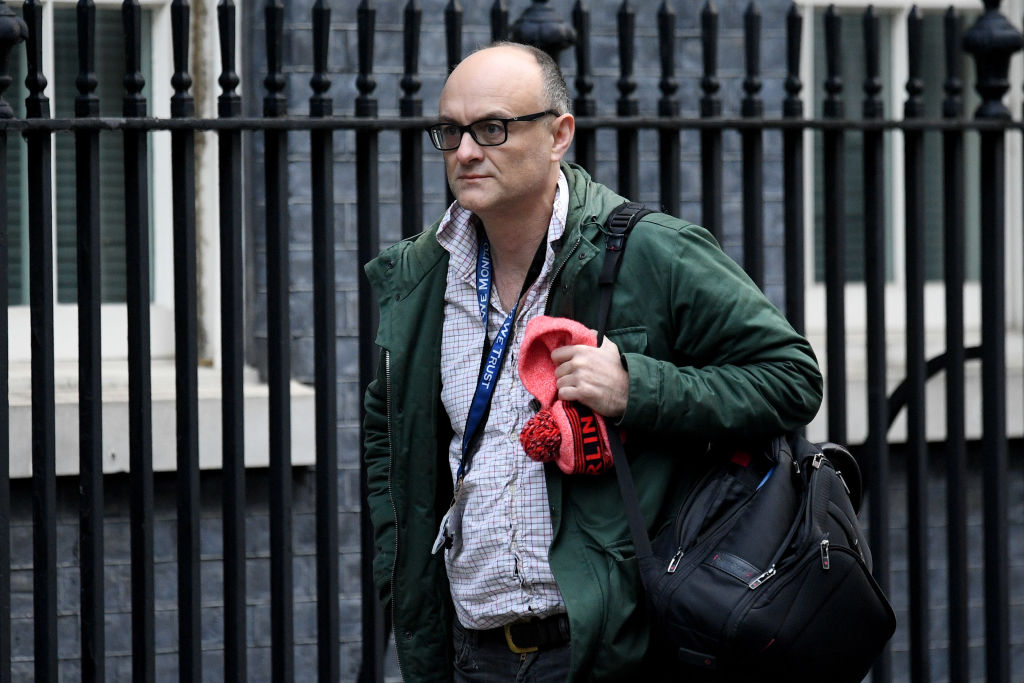On days like this, I despair of the media-political village where I’ve spent most of my adult life. Because that village is going to get very, very excited about some things that the Prime Minister said about one of his ministers on WhatsApp – even though it doesn’t really matter.
By now, you know that Boris Johnson wrote ‘totally fucking useless’ in an exchange with Dominic Cummings, and also said things about possibly removing Hancock from his job as health secretary in the early stages of the pandemic.
You know that because several thousand political journalists, tweeters and others have shared it, often with words like ‘bombshell’ and ‘dramatic revelation’. This is, of course, what Dominic Cummings wants and why he’s published details of those exchanges.
How important is it that the PM said something blunt and sweary about his health secretary?
But bluntly, so what? How important is it that the PM said something blunt and sweary about his health secretary? Or that he considered moving him from the job?
I’m not really a journalist anymore, but when I was, I used to try to apply a simple test to something that someone thought was ‘news’. Would the opposite of this be more surprising? If so, your ‘story’ probably isn’t as good as you think it is.
Is anyone surprised that a PM overseeing a government struggling to cope with a huge and terrible pandemic swore about his colleagues’ effectiveness sometimes? Is it a shock that he considered changing personnel in his top team to improve the performance of his organisation?
I politely suggest to my excited friends in the village that anyone who has ever worked in any sort of organisation will not be remotely surprised by these bombshell revelations. This is what people who run things during times of stress and challenge do all the time: vent angrily about others and consider making changes.
Frankly, I would be gob-smackingly surprised to learn that Boris Johnson had never sworn about a colleague or considered sacking people during the pandemic. In fact, in that case, I’d wonder if he was actually human.
When I was a young, earnest lobby correspondent, we used to fixate on whether Tony Blair, or one of his friends, had said something rude about Gordon Brown, and vice versa. Stories on such things were valuable currency, the stuff that made journalistic careers. They also helped ruin the standing of political journalism with some of the public, who – quite reasonably – didn’t give a fig about whether the people running the government liked or loathed each other, so long as that government did a decent job on schools, hospital, crime and jobs.
There are many causes of the anti-elite, anti-Westminster, anti-media mood that gave us Brexit and saw my friend Nick Watt mobbed on Whitehall this week. The impression given that ‘Westminster’ was a sack full of squabbling rats, eagerly described by journalists like me, is one such cause. (To be clear, nothing – nothing – excuses what happened to Nick: I write to explain, and explanation is not exculpation.)
Today’s excitement over the Cummings messages is just another repeat of those same mistakes over the TB-GBs and all the other office-gossip stories that have sustained – and weakened – political journalism for so long. Yes, the context is more dramatic, and format is breathlessly novel (Ooh, government by WhatsApp! As if other organisations don’t also rely on electronic messaging).
And in the end, what came of those sensational messages? Nothing. Boris vented. Hancock kept his job. The government did what it did on testing and the rest, giving us Covid outcomes that are known to all and on which voters have largely made up their minds.
The Cummings-Johnson-Hancock messages aren’t sensational or even interesting. They won’t surprise anyone and they won’t change anyone’s mind. But they’ll give the village something to talk about for a day, and that’s what really matters, right?







Comments